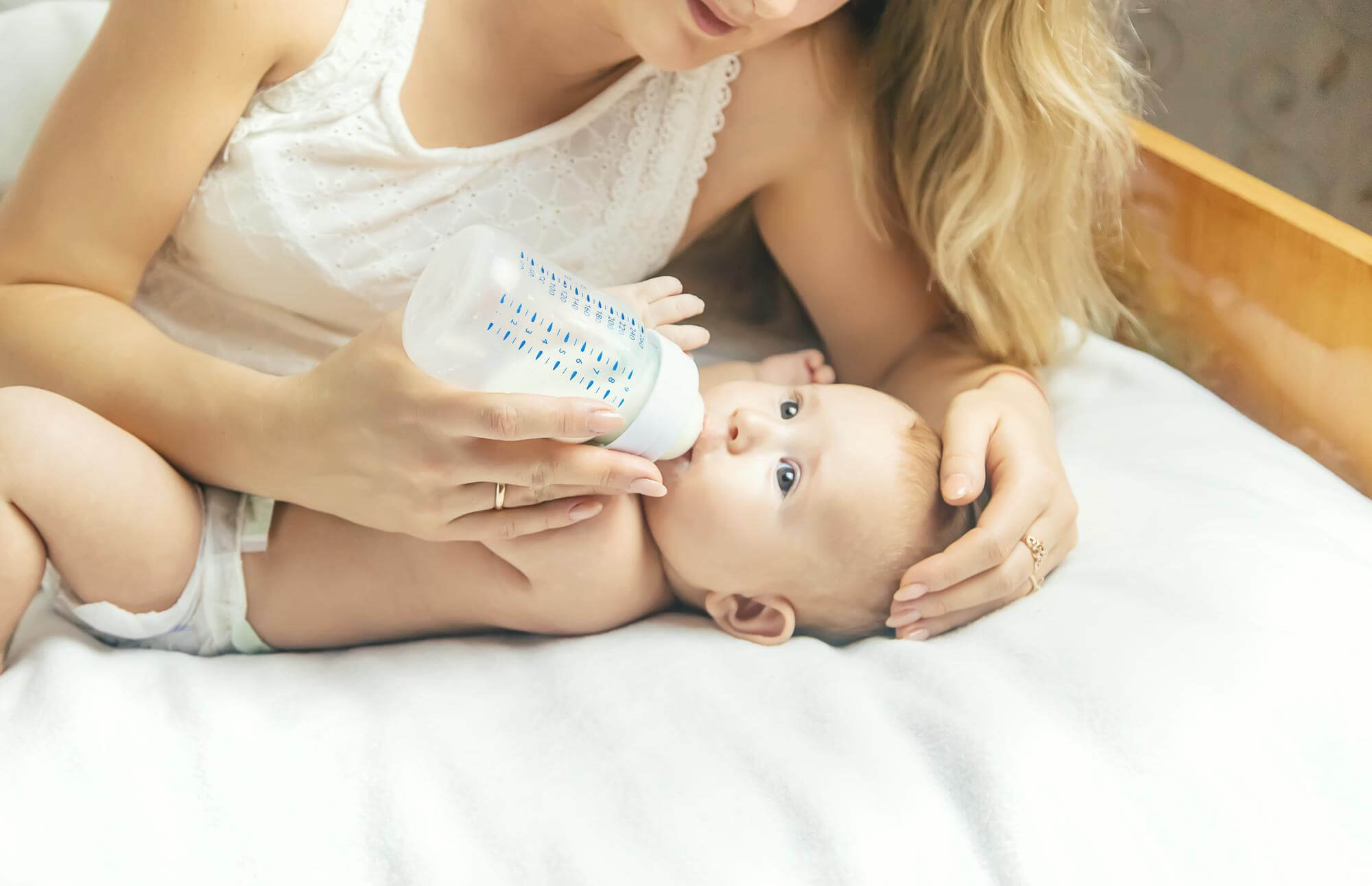Breast milk allergy: how to recognize, treat and prevent


Eva Zakharova
Breast milk allergies are a common problem in infants, causing concern for many parents. But can a baby be allergic to breast milk? In this article, an experienced allergist reviews the causes of breastfeeding allergies in a baby, discusses the symptoms and treatments, and offers a breastfeeding mom's menu for her baby's allergies.
Causes of breast milk allergies
Breastfeeding allergies can occur for a variety of reasons, among which the following stand out:
- Genetic predisposition to allergies in a baby on gv can be passed on from the parents. If one of the parents had allergic reactions, the likelihood of such a reaction in the child increases.
- A nursing mother can pass on allergens through breast milk if she herself suffers from food allergies. In this case, the newborn's allergy may manifest itself to those products that cause a reaction in the mother.
- Early introduction of complementary foods can lead to the development of food allergies in the infant, as his body is not yet ready to digest new products.
Symptoms of allergies to breast milk

A baby's allergy to breast milk can manifest itself with a variety of symptoms, including:
- Cutaneous allergy symptoms include redness, rashes, itching and swelling. These manifestations may be localized to certain areas of the body or spread throughout the baby's body.
- Breast milk allergies can cause digestive problems such as colic, nausea, vomiting, diarrhea, and constipation. The infant may also experience abdominal pain and increased gas.
- Some babies suffer from breathing problems with breast milk allergies, including coughing, runny nose, stuffy nose, and shortness of breath.
Breast milk allergy diagnosis
The doctor may suggest the following diagnostic methods to determine a breastfeeding allergy:
- A history review, physical examination, and discussion of symptoms with your doctor can help determine if a breast milk allergy is present.
- The baby's blood may be tested for specific antibodies indicating an allergy. Skin tests are also done, which can confirm allergies to certain foods.
Breast milk allergy treatment

Treatment of allergies in a breastfeeding infant includes the following methods:
- A breastfeeding mom's menu for allergies in her baby should exclude foods that cause allergies. It is important to watch your diet and avoid allergens such as cow's milk, eggs, soy, nuts, fish and seafood.
- If your baby's allergy to breast milk is severe, your doctor may recommend using hypoallergenic formula to feed your baby.
Medications
Your doctor may prescribe medications to relieve the symptoms of allergies in an infant in gf. Antihistamines such as suprastin or phenistyl may be used to reduce itching and redness of the skin. In the case of digestive problems, probiotics and medications to normalize the gastrointestinal tract may be prescribed.
How can I prevent allergy to breast milk?
To prevent allergies while breastfeeding, several recommendations should be followed:
- Watch your diet during pregnancy and breastfeeding and avoid potential allergens.
- Introduce complementary foods at the earliest before the baby is 6 months old, and do it gradually, starting with small portions.
- See your doctor at the first sign of your baby's allergies so that you can treat them promptly and prevent complications.
Breast milk allergies are common and require attention and monitoring by parents and doctors. By following the recommendations on the mother's diet, the timely introduction of complementary foods and the use of medications, it is possible to control the manifestations of allergies in the baby and ensure healthy growth and development.
New materials
Popular Articles
We recommend reading
Contact us in the Contact Us section to ask questions, offer ideas, or for more information about our allergy resource.
Our articles are your trusted source of allergy knowledge. Learn how to make life with allergic reactions easier on our specialized portal.
©
Lechenie-Allergii.com. All rights reserved.
© Lechenie-Allergii.com. All rights reserved.
The information on this site is for informational purposes only and is not a substitute for professional medical advice. We recommend consulting with qualified medical professionals for accurate information and advice.
 English
English  Українська
Українська  Русский
Русский 









